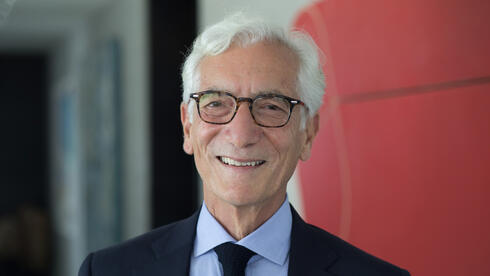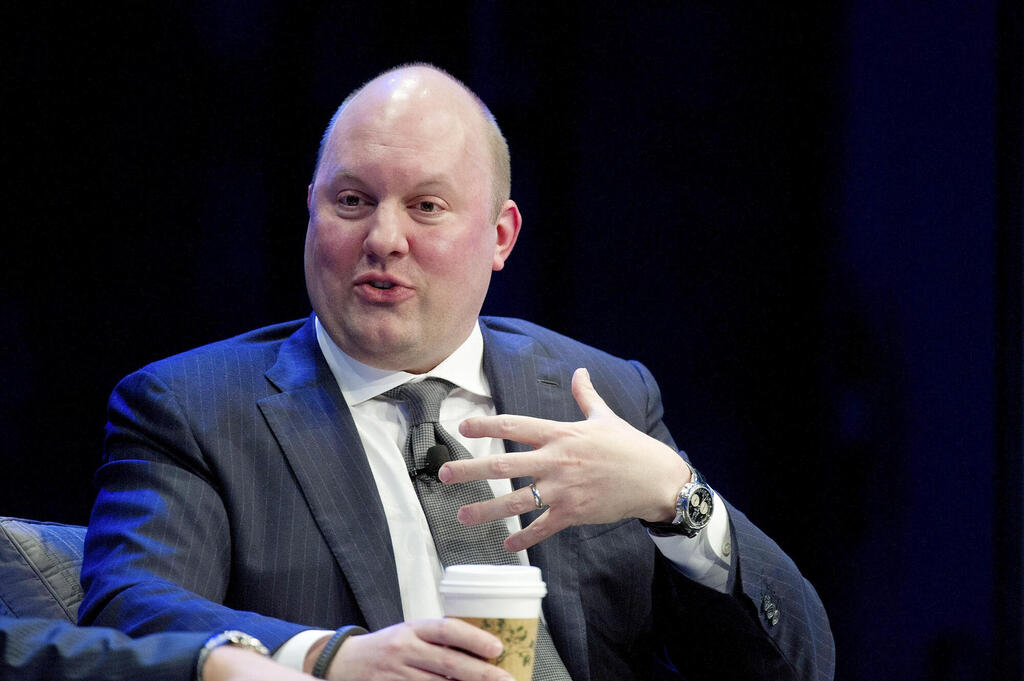
Analysis
The limits of high-tech solutions were exposed for all to see in 2023
There is a need to move beyond blind faith in technology, considering the societal implications and responsibilities associated with technological innovations
How do you sum up the year in the technology sector if time stood still on October 7? 2023 was saturated with exciting events on a global and local level, from fundraisings and exits to scams and bankruptcies. The field of artificial intelligence jumped to the forefront, while in other fields founders went to prison. This year no less than two banks collapsed because of their connection to the technology market and even one submarine exploded. But all these events were wrapped around one symptom: technological immunodeficiency, in which an unstable, dangerous and disconnected ecosystem thrives. Technological developments advance humanity, but the tendency to see them as a vision of everything and a solution to all the needs of the human race ends in disappointment time and time again, and the past year was marked by the clash between expectations and reality.
The most serious case occurred on October 7 along the Israel-Gaza border. Along with the government, the army was, without question, complicit in the failure. Over 1,200 murdered and kidnapped, tens of thousands evacuated, towns went up in flames.
The idea that had dominated previously in a country dazzled by high-tech began to be undermined - that a violent conflict could be contained with technological means such as the protective barrier along the Gaza border and the Iron Dome. "Overreliance on technology is a mistake," the headlines screamed immediately afterward. "No one asked what the backup for the technology was," a Shin Bet official was quoted in another article, "this is how the Hamas terrorists bypassed an obstacle in which NIS 3.5 billion was invested. We fell in love with technology, and then it let us down."
At the beginning of the war it seemed as if a process of correction was taking place and humans were back at the center. They talked about the heroism of the sons and daughters of the towns and villages, about policemen and policewomen, male and female fighters, the founders of the kibbutzim, the women of Ofakim and the IDF lookouts. We were dealing with real people. In practice, all indicators pointed to the continuation of the trend. Shortly after the massacre some politicians proposed technological solutions that would solve the problems created by the previous technologies. Technology to flood the Hamas tunnels with sea water will take care of the problem created by the barrier - a false sense of security.
The crypto stars are under arrest or in prison
Expectations met with reality in a less threatening way in the crypto market as well. 2023 was undoubtedly the most difficult year of this market since it crowned itself as an alternative to the traditional system, especially the institutionalized financial system. One by one, huge crypto companies collapsed, and their managers found themselves embroiled in civil and criminal lawsuits, some of them already under arrest or in prison. Others reached compromise deals in which they were prohibited from engaging in these fields for the rest of their lives.
The world's largest exchange Binance will pay a fine of $4.3 billion, among other things, for not preventing the use of its platform for terrorist financing. The founder and CEO Changpeng Zhao (known as CZ) is not allowed to leave the United States until his sentencing. Sam Bankman Fried of FTX, found guilty of defrauding investors and customers, will receive decades in prison, and behind these two are a long line of bankrupt companies from Celsius to BlockFi. Against the backdrop of enormous pressure from regulators, the third largest exchange in the world, the American Coinbase, led by CEO Brian Armstrong, published an advertisement page in the American press in recent days detailing the market's achievements in 2023: "Continuous access to your money", "interest rates that beat savings accounts" and "small businesses that pay lower fees", but forgot to mention the main thing: loss of savings for millions of users. "See you in 2024", they concluded.
The autonomous and electric vehicle is stuck
In the field of autonomous cars and autonomous taxis (so-called robo-taxi) we were equally dismayed. The American company Cruise, the autonomous vehicle service of General Motors, has eliminated all its experiments with taxis in the United States; Ford has closed its development center in the field of autonomous vehicles; And Tesla, which prides itself on its autopilot system, has the highest accident rate in the car market. In an American court, a judge even determined that the company knew that its system was defective, and Tesla recalled 2 million vehicles to fix the software.
This year we also discovered that the green revolution will not reach the field of transportation so quickly, after the founder of the electric truck company Nikola was sent to prison for defrauding investors and the Hyperloop company announced the elimination of its efforts to quickly transport cargo in capsules. Hyperloop once planned to transport people to overcome traffic jams before giving up on that too, the competitor, Elon Musk's Boring Company, has existed for almost a decade and dug only about 3 kilometers of tunnel.
Who is to blame: technology or humans?
The technology in these stories is not to blame. Even though entrepreneurs always take the person out of the equation when expectations meet reality, the blame is always directed at the human factor: it's Bankman Fried, it's CZ, it's Musk. Of course this is not a complete mistake. You can't blame technology for that because it has no intentions or interests. Technology does not fail in the same way that humans fails, it only fails in the way that humans planned or misplanned. Technology didn't want anything, but that's not the reason why we don't blame it, but because many of those who work in the field, whether entrepreneurs or investors, do so relying on a belief that technology is inherently good. They unquestionably assume that the next technology must be invented to fix the problem caused by the previous technology, while also pushing to promote its use as if it were some scientific truth and not part of a complex system that includes power, society and interests. People of this type have already been given a definition - fundamentalists.
You don't have to be a religious fanatic to be a fundamentalist. This can happen to well-intentioned educated people who have stopped asking complex questions like why we do what we do, how best to do it, or how what we do affects the long term. A society based on technology also tends to become fundamentalist when it is unable to question the technological tools it has developed. Companies of this type, environmental scientist David Orr explained in the past, have many means but are short on goals; They are those that cannot be separated between "can do" and "must do". These are societies where there are those who tend to be blinded by the comfort or control of others or are afraid of being portrayed as unmodern. Orr knew exactly thirty years ago that this is an environment that forgets that the enterprise of technological innovation must be judged against a certain well-defined standard, such as: "Will technology help us become a healthier, more sane and more sustainable society?".
Fix the technology with more technology
It's no coincidence that this very year, when so many promising fields shrank to their true size, is the year that entrepreneur and investor Marc Andreessen published a 5,222-word post about "techno-optimism." He published the text at the end of September, against the background of bursting bubbles, and its purpose is to praise technology and the free market. "The only constant source of growth is technology," he wrote, among other things, and stated "that there is no material problem—whether created by nature or by technology—that cannot be solved with more technology."
One could think that Andreessen wrote these things as an intellectual defiance of the state of affairs. As if quoting Friedrich Nietzsche and Andy Warhol will make us forget that many have lost their life savings in crypto, that inflation is still rampant in many regions and inequality is deepening. "We are told to be angry, bitter and resentful about technology," writes the billionaire Andreessen, one of the largest investors in the crypto market, and then immediately says: "We have a problem of poverty, so we invent technology to create abundance," while quoting the libertarian economist Friedrich Hayek (it's a shame that Andreessen didn't also learn from the mathematician Blaise Pascal who emphasized the importance of the measured word: "I would write less if I had more time", he noted in one of his famous quotes).
Andreessen, who begins the text with the statement "we are being lied to", as if he is just part of the crowd and not part of the Facebook board, does not really defy power or those in power in his post. As a technological fundamentalist, he describes the concept that has dominated for years, and doesn't actually challenge it. This includes a deterministic vision of a future where you can only choose between two options: high-tech or wasteland. Between these two, the choice is simple - after all, who wants to leave in a wasteland?
Who has the burden of proof?
This optimism takes a hit when the techno-optimistic hopes do not live up to expectations, and as mentioned we had a lot of that this year. But we often read news like this and assume that apparently something was wrong with the companies, entrepreneurs or investors, instead of understanding that there is something inherently wrong with the fact that we put all our trust in these technologies in the first place.
Do social networks create a toxic environment? The problem is with X (formerly Twitter) or Facebook and not with the fact that we thought that social networks would connect the whole world together. Do autonomous vehicles keep causing accidents? The problem is only with Tesla's software or Musk's arrogance, not that the government is neglecting infrastructure. Hyperloop is shutting down? There is probably too much regulation, let's ignore the fact that there is simply a proven solution to the problem, for example trains. Are crypto companies collapsing? The market is simply young, God forbid that the traditional financial system has already experienced all these birth pains and there is no need to make all the mistakes again.
Historian Zachary Loeb, who deals a lot with technology criticism, noticed that every criticism from the technological fundamentalists includes a rather unique "treatment": "One company or one field will be torn apart by them, just to provide the new techno-optimist space for the new technology." It's like a relay race, with the baton being passed from hand to hand: social networks are destroying the world, here are autonomous vehicles that will soon improve our lives. The vehicles don't arrive and the problems just keep piling up? Luckily blockchain will replace them. We have lost faith in blockchain, and right on time generative artificial intelligence enters our lives.
In this, Loeb points out, we are not really talking about politics, social relations or priorities that shape our world. The power structures are ignored just as the politics that influenced the fourth Netanyahu government to establish the "technological barrier" are ignored as if it only offered a technological defensive solution that would fix our problems without us having to deal with how these problems were created in the first place. With far less devastating results, Hyperloop and Boring are working to build underground tunnels as if there is no 100-year-old solution to transporting passengers by the name of "public transportation"... Crypto companies are building a technological tool that bypasses regulation to transfer money quickly, ignoring that the slowness is intentional to prevent money laundering. The technology is out of context, shockingly ahistorical. So when a developed tool does not meet expectations or fulfill its purpose, the culprit is only the time or the person. We just have to passively wait for the better app or the more advanced technology to save the day.
It is clear why Andreessen, who does not want to engage in politics and society, sees ethics and caution as the enemy. But this year more than anything emphasized that politics and power structures must not be ignored and reminded that the person (or the observer) must be put in the center, and not the concrete and steel wall equipped with sensors and cameras. The past year also emphasized that instead of constantly asking critics to prove that a new product or process could be harmful, the burden of proof should be on those who support that new tool, to show that it is safe to use. The lesson learned this year is difficult but not pessimistic: we must stop believing in a technological magic solution to all our social problems; And you can't expect those who failed to correct the situation.















